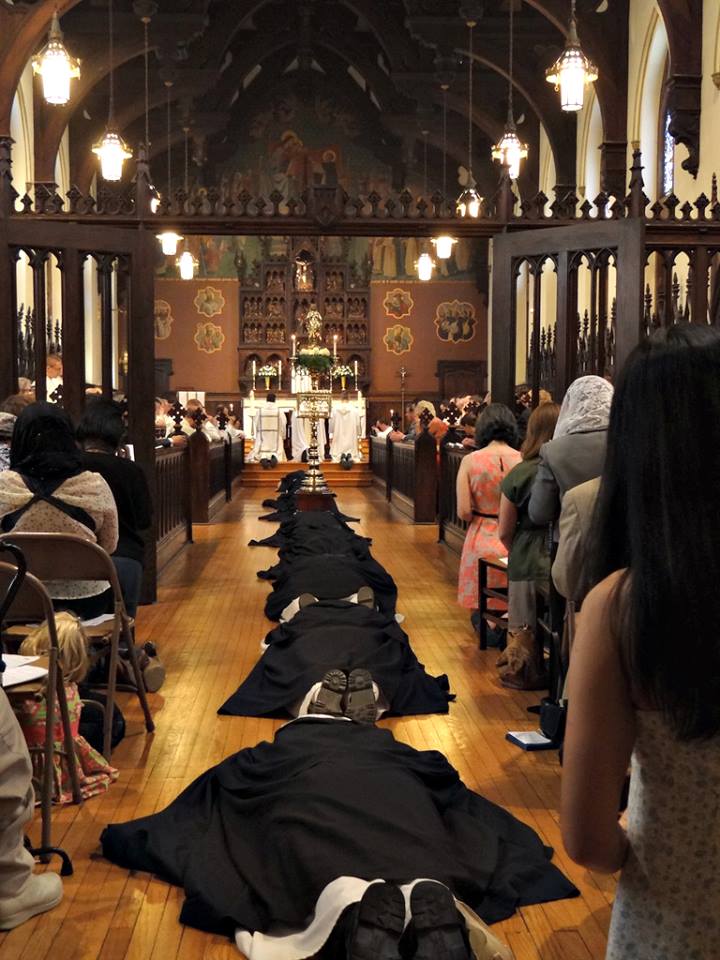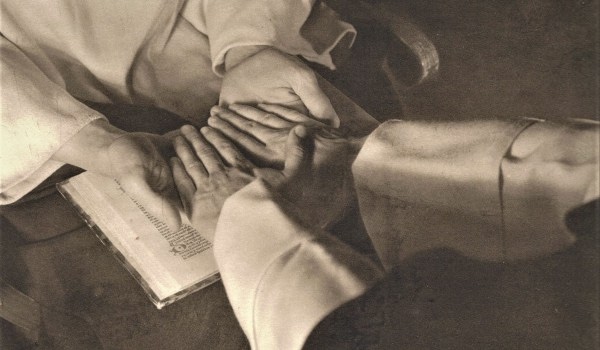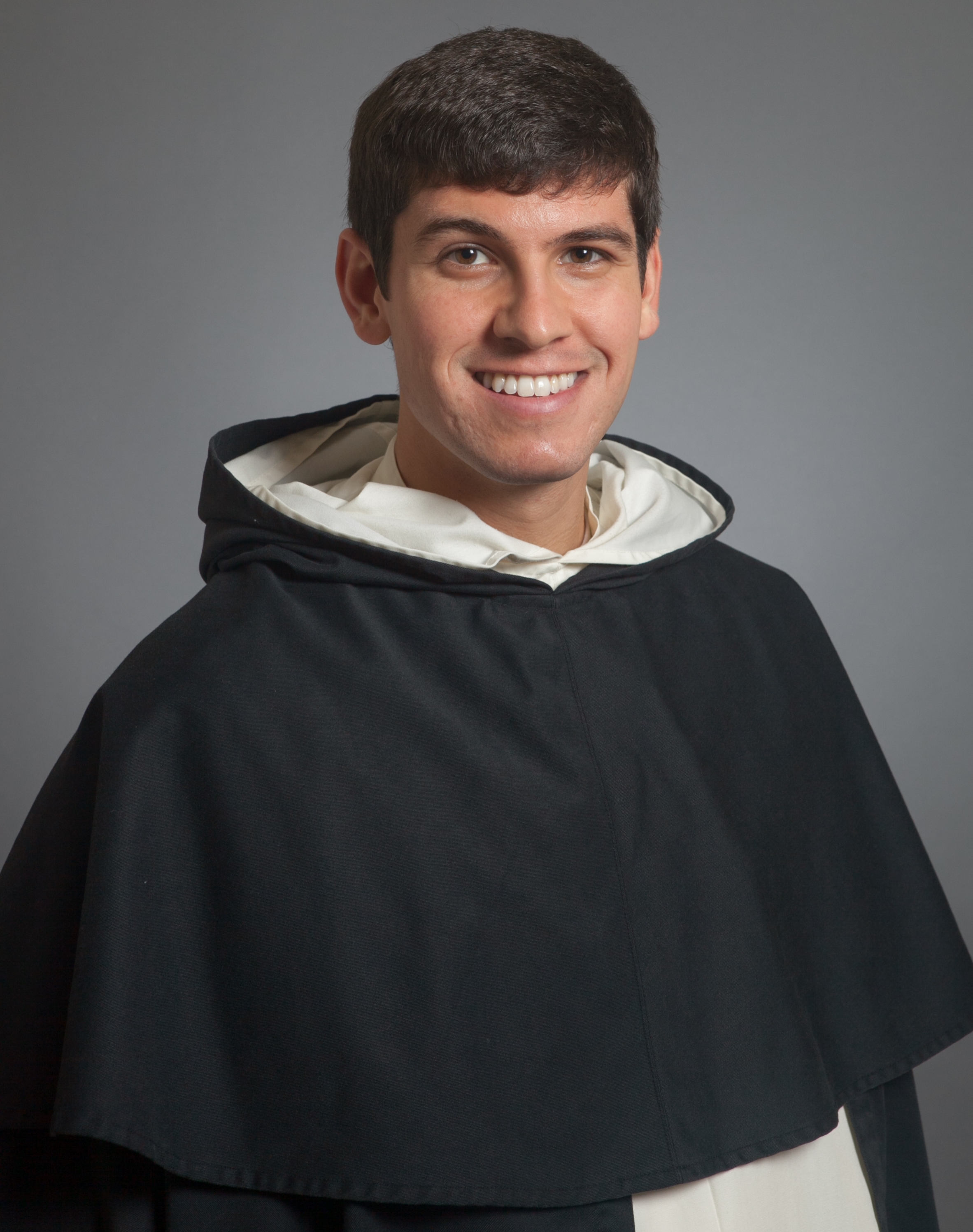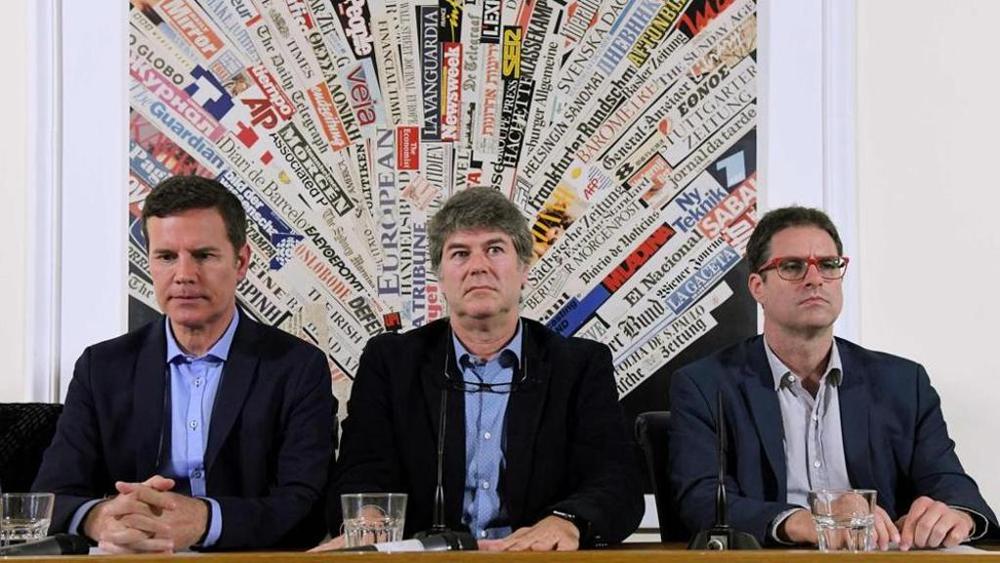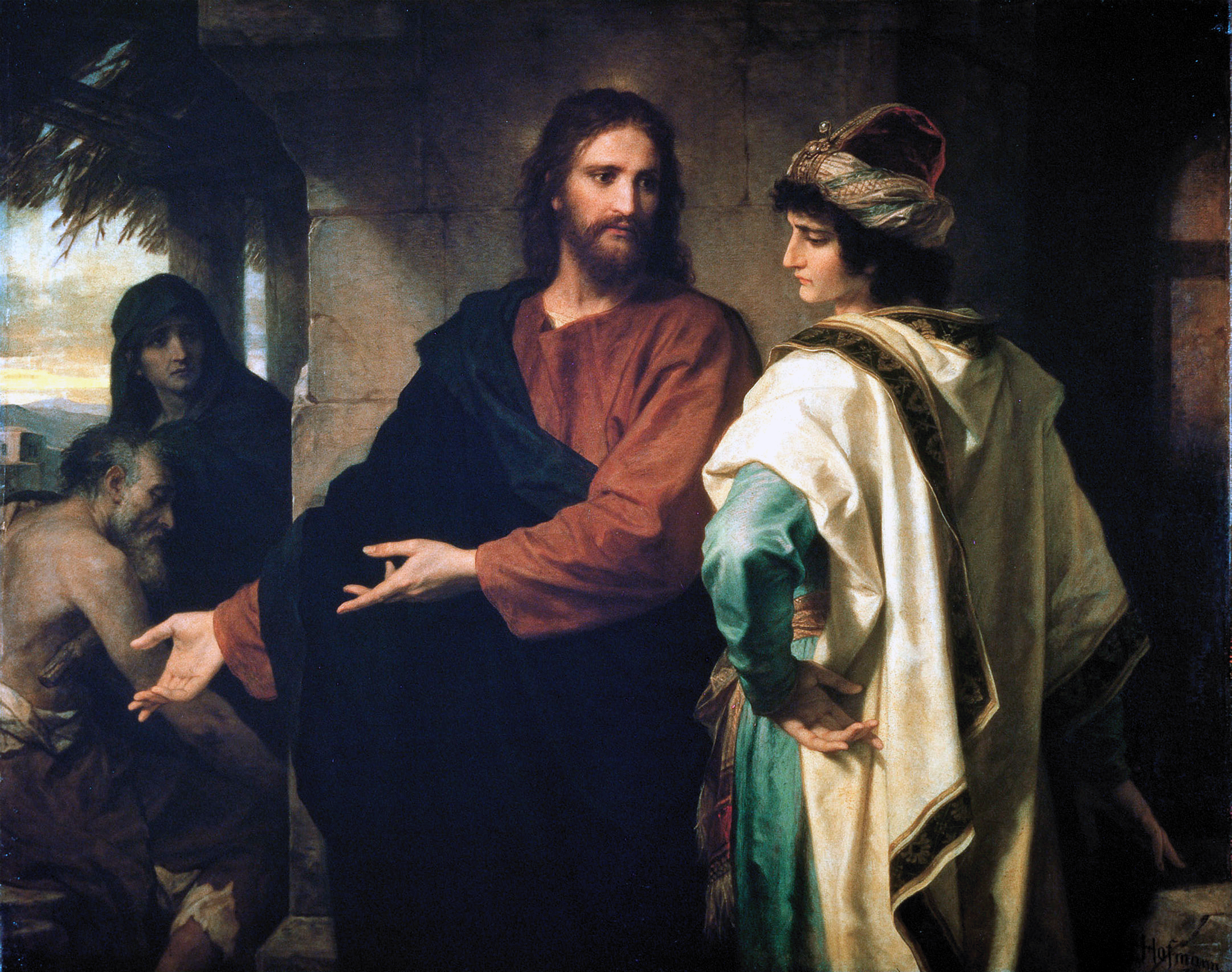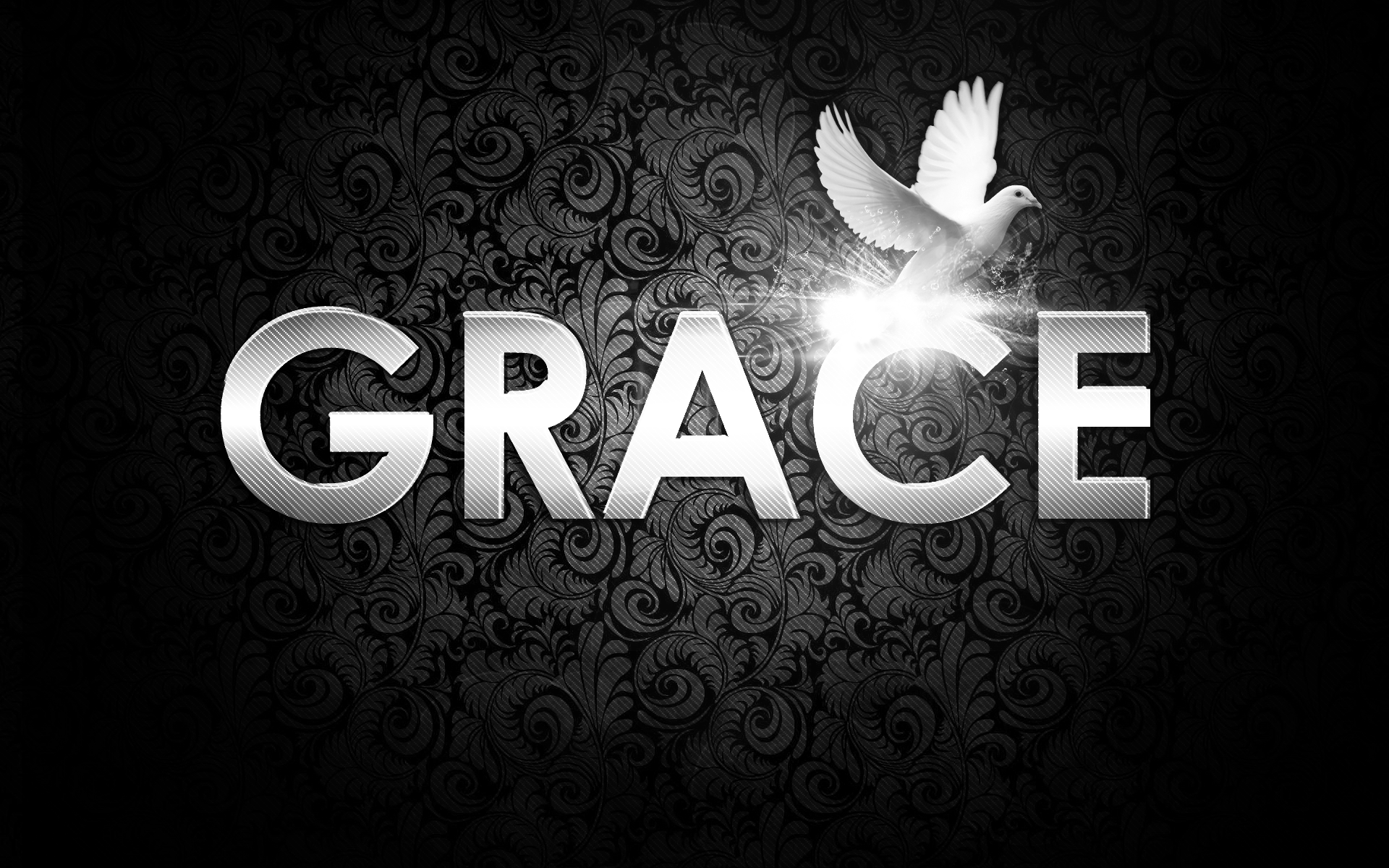
“St Anthony!! St Anthony!! Please come ’round!! Something’s lost and can’t be found!!” is a popular Catholic ejaculation.
This excerpt is from the book, “Saint Anthony of Padua: The Story of His Life and Popular Devotions”, which was published in commemoration of the 100th anniversary of St. Anthony Messenger by Franciscan Father Norman Perry (1929-1999)
“Legends about Anthony abound. But let’s turn to the known facts about him.
Anthony was born in 1195 (13 years after St. Francis of Assisi) in Lisbon, Portugal and given the name of Fernando at Baptism. His parents, Martin and Mary Bulhom, apparently belonged to one of the prominent families of the city.
At the age of 15 he entered the religious order of St. Augustine. Monastery life was hardly peaceful for young Fernando, nor conducive to prayer and study, as his old friends came to visit frequently and engaged in vehement political discussions.
After two years he was sent to Coimbra. There he began nine years of intense study, learning the Augustinian theology that he would later combine with the Franciscan vision. Fernando was probably ordained a priest during this time.
The life of the young priest took a crucial turn when the bodies of the first five Franciscan martyrs were returned from Morocco. They had preached in the mosque in Seville, almost being martyred at the outset, but the sultan allowed them to pass on to Morocco, where, after continuing to preach Christ despite repeated warnings, they were tortured and beheaded. Now, in the presence of the queen and a huge crowd, their remains were carried in solemn procession to Fernando’s monastery.
He was overjoyed and inspired to a momentous decision. He went to the little friary in Coimbra and said, “Brother, I would gladly put on the habit of your Order if you would promise to send me as soon as possible to the land of the Saracens, that I may gain the crown of the holy martyrs.” After some challenges from the prior of the Augustinians, he was allowed to leave that priory and receive the Franciscan habit, taking the name Anthony.
True to their promise, the Franciscans allowed Anthony to go to Morocco, to be a witness for Christ, and a martyr as well. But, as often happens, the gift he wanted to give was not the gift that was to be asked of him. He became seriously ill, and after several months realized he had to go home.
He never arrived. His ship ran into storms and high winds and was blown east across the Mediterranean. Months later he arrived on the east coast of Sicily. The friars at nearby Messina, though they didn’t know him, welcomed him and began nursing him back to health. Still ailing, he wanted to attend the great Pentecost Chapter of Mats (so called because the 3,000 friars could not be housed and slept on mats). Francis was there, also sick. History does not reveal any meeting between Francis and Anthony.
Since the young man was from “out of town,” he received no assignment at the meeting, so he asked to go with a provincial superior from northern Italy. “Instruct me in the Franciscan life,” he asked, not mentioning his prior theological training. Now, like Francis, he had his first choice—a life of seclusion and contemplation in a hermitage near Montepaolo.
Perhaps we would never have heard of Anthony if he hadn’t gone to an ordination of Dominicans and Franciscans in 1222. As they gathered for a meal afterward, the provincial suggested that one of the friars give a short sermon. Quite typically, everybody ducked. So Anthony was asked to give “just something simple,” since he presumably had no education.
Anthony too demurred, but finally began to speak in a simple, artless way. The fire within him became evident. His knowledge was unmistakable, but his holiness was what really impressed everyone there.
Now he was exposed. His quiet life of prayer and penance at the hermitage was exchanged for that of a public preacher. Francis heard of Anthony’s previously hidden gifts, and Anthony was assigned to preach in northern Italy. The problem with many preachers in Anthony’s day was that their life-style contrasted sharply with that of the poor people to whom they preached. In our experience, it could be compared to an evangelist arriving in a slum driving a Mercedes, delivering a homily from his car and speeding off to a vacation resort. Anthony saw that words were obviously not enough. He had to show gospel poverty. People wanted more than self-disciplined, even penitent priests. They wanted genuineness of gospel living. And in Anthony they found it. They were moved by who he was, more than what he said.
Despite his efforts, not everyone listened. Legend has it that one day, faced with deaf ears; Anthony went to the river and preached to the fishes. That, reads the traditional tale, got everyone’s attention.
Anthony traveled tirelessly in both northern Italy and southern France—perhaps 400 trips—choosing to enter the cities where the heretics were strongest. Yet the sermons he has left behind rarely show him taking direct issue with the heretics. As the historian Clasen interprets it, Anthony preferred to present the grandeur of Christianity in positive ways. It was no good to prove people wrong: Anthony wanted to win them to the right, the healthiness of real sorrow and conversion, the wonder of reconciliation with a loving Father.
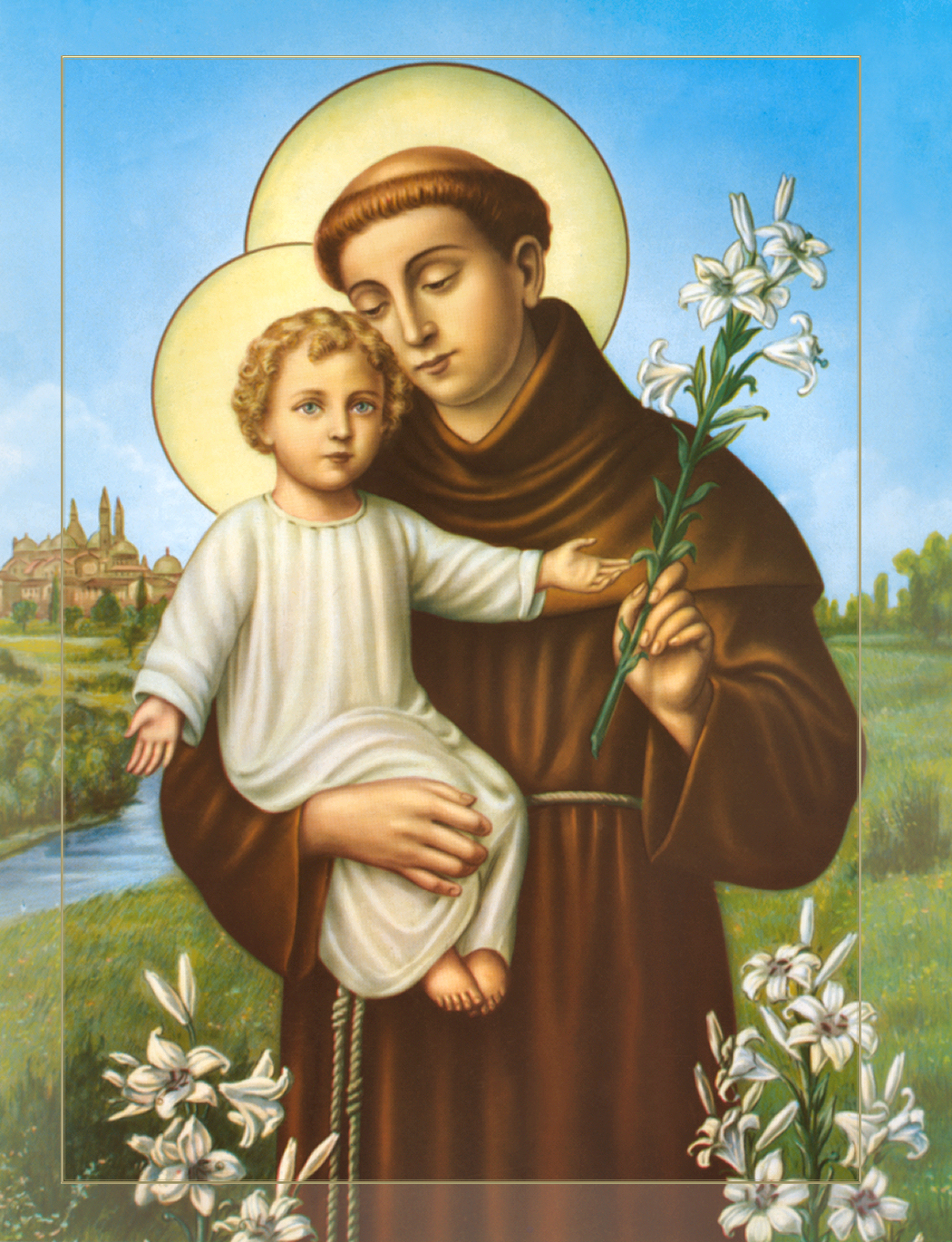
Public Preacher, Franciscan Teacher
Anthony’s superior, St. Francis, was cautious about education such as his protégé possessed. He had seen too many theologians taking pride in their sophisticated knowledge. Still, if the friars had to hit the roads and preach to all sorts of people, they needed a firm grounding in Scripture and theology. So, when he heard the glowing report of Anthony’s debut at the ordinations, Francis wrote in 1224, “It pleases me that you should teach the friars sacred theology, provided that in such studies they do not destroy the spirit of holy prayer and devotedness, as contained in the Rule.”
Anthony first taught in a friary in Bologna, which became a famous school. The theology book of the time was the Bible. In one extant sermon by the saint, there are at least 183 passages from Scripture. While none of his theological conferences and discussions were written down, we do have two volumes of his sermons: Sunday Sermons and Feastday Sermons. His method included the use of allegory and symbolic explanation of Scripture.
Anthony continued to preach as he taught the friars and assumed more responsibility within the Order. In 1226 he was appointed provincial superior of northern Italy, but still found time for contemplative prayer in a small hermitage. Around Easter in 1228 (he was only 33 years old), while in Rome, he met Pope Gregory IX, who had been a faithful friend and adviser of St. Francis. Naturally, the famous preacher was invited to speak. He did it humbly, as always. The response was so great that people later said that it seemed the miracle of Pentecost was repeated.

Padua Enters the Picture
Padua, Italy is a short distance west of Venice. At the time of Anthony, it was one of the most important cities in the country, with an important university for the study of civil and canon law. Sometimes Anthony left Padua for greater solitude. He went to a place loved by Francis—LaVerna, where Francis received the wounds of Jesus. He also found a grotto near the friary where he could pray in solitude.
In poor health, and still provincial superior of northern Italy, he went to the General Chapter in Rome and asked to be relieved of his duties. But he was later recalled as part of a special commission to discuss certain matters of the Franciscan Rule with the pope.
Back in Padua, he preached his last and most famous Lenten sermons. The crowds were so great—sometimes 30,000—that the churches could not hold them, so he went into the piazzas or the open fields. People waited all night to hear him. He needed a bodyguard to protect him from the people armed with scissors who wanted to snip off a piece of his habit as a relic. After his morning Mass and sermon, he would hear confessions. This sometimes lasted all day—as did his fasting.
The great energy he had expended during the Lent of 1231 left him exhausted. He went to a little town near Padua, but seeing death coming close, he wanted to return to the city that he loved. The journey in a wagon weakened him so much, however, that he had to stop at Arcella. He had to bless Padua from a distance, as Francis had blessed Assisi.
At Arcella, he received the last sacraments, sang and prayed with the friars there. When one of them asked Anthony what he was staring at so intently, he answered, “I see my Lord!” He died in peace a short time after that. He was only 36 and had been a Franciscan but 10 years.
The following year, his friend, Pope Gregory IX, moved by the many miracles that occurred at Anthony’s tomb, declared him a saint. Anthony was a simple and humble friar who preached the Good News lovingly and with fearless courage. The youth whom his fellow friars thought was uneducated became one of the great preachers and theologians of his day. He was a man of great penance and apostolic zeal. But he was primarily a saint of the people.
Miracles and Traditions of St Anthony
The reason for invoking St. Anthony’s help in finding lost or stolen things is traced back to an incident in his own life. As the story goes, Anthony had a book of psalms that was very important to him. Besides the value of any book before the invention of printing, the psalter had the notes and comments he had made to use in teaching students in his Franciscan Order.
A novice who had already grown tired of living religious life decided to depart the community. Besides going AWOL he also took Anthony’s psalter! Upon realizing his psalter was missing, Anthony prayed it would be found or returned to him. And after his prayer the thieving novice was moved to return the psalter to Anthony and to return to the Order, which accepted him back. Legend has embroidered this story a bit. It has the novice stopped in his flight by a horrible devil, brandishing an ax and threatening to trample him underfoot if he did not immediately return the book. Obviously a devil would hardly command anyone to do something good. But the core of the story would seem to be true. And the stolen book is said to be preserved in the Franciscan friary in Bologna.
In any event, shortly after his death people began praying through Anthony to find or recover lost and stolen articles. And the Responsory of St. Anthony composed by his contemporary, Julian of Spires, O.F.M., proclaims
“The sea obeys and fetters break
And lifeless limbs thou dost restore
While treasures lost are found again
When young or old thine aid implore.”
St. Anthony Bread is a term used for offerings made in thanksgiving to God for blessings received through the prayers of St. Anthony. Sometimes the alms are given for the education of priests. In some places parents also make a gift for the poor after placing a newborn child under the protection of St. Anthony. It is a practice in some churches to bless small loaves of bread on the feast of St. Anthony and give them to those who want them.
Different legends or stories account for the donation of what is called St. Anthony Bread. By at least one account it goes back to 1263, when it is said a child drowned near the Basilica of St. Anthony which was still being built. His mother promised that if the child was restored to her she would give for the poor an amount of corn equal to the child’s weight. Her prayer and promise were rewarded with the boy’s return to life.
Another reason for the practice is traced back to Louise Bouffier, a shopkeeper in Toulon, France. A locksmith was prepared to break open her shop door after no key would open it. Bouffier asked the locksmith to try his keys one more time after she prayed and promised to give bread to the poor in honor of St. Anthony if the door would open without force. The door then opened. After others received favors through the intercession of St. Anthony, they joined Louise Bouffier in founding the charity of St. Anthony Bread.
St Anthony and the Child Jesus
St. Anthony has been pictured by artists and sculptors in all kinds of ways. He is depicted with a book in his hands, with a lily or torch. He has been painted preaching to fish, holding a monstrance with the Blessed Sacrament in front of a mule or preaching in the public square or from a nut tree.
But since the 17th century we most often find the saint shown with the child Jesus in his arm or even with the child standing on a book the saint holds. A story about St. Anthony related in the complete edition of Butler’s Lives of the Saints projects back into the past a visit of Anthony to the Lord of Chatenauneuf. Anthony was praying far into the night when suddenly the room was filled with light more brilliant than the sun. Jesus then appeared to St. Anthony under the form of a little child. Chatenauneuf, attracted by the brilliant light that filled his house, was drawn to witness the vision but promised to tell no one of it until after St. Anthony’s death.
Some may see a similarity and connection between this story and the story in the life of St. Francis when he reenacted at Greccio the story of Jesus, and the Christ Child became alive in his arms. There are other accounts of appearances of the child Jesus to Francis and some companions.
These stories link Anthony with Francis in a sense of wonder and awe concerning the mystery of Christ’s incarnation. They speak of a fascination with the humility and vulnerability of Christ who emptied himself to become one like us in all things except sin. For Anthony, like Francis, poverty was a way of imitating Jesus who was born in a stable and would have no place to lay his head.
In Portugal, Italy, France and Spain, St. Anthony is the patron saint of sailors and fishermen. According to some biographers his statue is sometimes placed in a shrine on the ship’s mast. And the sailors sometimes scold him if he doesn’t respond quickly enough to their prayers.
Not only those who travel the seas but also other travelers and vacationers pray that they may be kept safe because of Anthony’s intercession. Several stories and legends may account for associating the saint with travelers and sailors.
First, there is the very real fact of Anthony’s own travels in preaching the gospel, particularly his journey and mission to preach the gospel in Morocco, a mission cut short by severe illness. But after his recovery and return to Europe, he was a man always on the go, heralding the Good News.
There is also a story of two Franciscan sisters who wished to make a pilgrimage to a shrine of our Lady but did not know the way. A young man is supposed to have volunteered to guide them. Upon their return from the pilgrimage one of the sisters announced that it was her patron saint, Anthony, who had guided them.
Still another story says that in 1647 Father Erastius Villani of Padua was returning by ship to Italy from Amsterdam. The ship with its crew and passengers was caught in a violent storm. All seemed doomed. Father Erastius encouraged everyone to pray to St. Anthony. Then he threw some pieces of cloth that had touched a relic of St. Anthony into the heaving seas. At once, the storm ended, the winds stopped and the sea became calm.
Teacher, Preacher, Doctor of the Scriptures
Among the Franciscans themselves and in the liturgy of his feast, St. Anthony is celebrated as a teacher and preacher extraordinaire. He was the first teacher in the Franciscan Order, given the special approval and blessing of St. Francis to instruct his brother Franciscans. His effectiveness as a preacher calling people back to the faith resulted in the title “Hammer of Heretics.” Just as important were his peacemaking and calls for justice.
In canonizing Anthony in 1232, Pope Gregory IX spoke of him as the “Ark of the Testament” and the “Repository of Holy Scripture.” That explains why St. Anthony is frequently pictured with a burning light or a book of the Scriptures in his hands. In 1946 Pope Pius XII officially declared Anthony a Doctor of the Universal Church. It is in Anthony“s love of the word of God and his prayerful efforts to understand and apply it to the situations of everyday life that the Church especially wants us to imitate St. Anthony. While noting in the prayer of his feast Anthony’s effectiveness as an intercessor, the Church wants us to learn from Anthony, the teacher, the meaning of true wisdom and what it means to become like Jesus, Who humbled and emptied Himself for our sakes and went about doing good.”
In St. Anthony we see the complete harmony of faith and reason, but also that “the wisdom of this world is folly with God. (1 Cor 3:19)” The world may tell us to search for our keys ourselves, unaided by useless prayers. But in light of the knowledge we have through faith, the most rational course of action is to beg for the assistance of the all-knowing & all-loving God, Who certainly knows where our keys are, and Who wishes to help us find them, since He ONLY wills our good through His love, and through the intercession of St. Anthony. The world may tell us that if we are going to find happiness, we must grasp it for ourselves. But through the intercession and teaching of St. Anthony, let us grow in the confidence that our salvation comes through faithfully following Jesus Christ, and Him crucified.
“The man who is filled with the Holy Spirit speaks in different languages. These different languages are different ways of witnessing to Christ, such as humility, poverty, patience, and obedience; we speak in those languages when we reveal in ourselves these virtues to others. Actions speak louder than words . . . it is useless for a man to flaunt his knowledge of the law if he undermines its teaching by his actions. But the apostles spoke as the Spirit gave them the gift of speech. Happy the man whose words issue from the Holy Spirit and not from himself! … We should speak, then, as the Holy Spirit give us the gift of speech. Our humble and sincere request to the Spirit for ourselves should be that we may bring the day of Pentecost to fulfillment, insofar as he infuses us with his grace, by using our bodily senses in a perfect manner and by keeping the commandments. ”
— St. Anthony of Padua, p. 492, Witness of the Saints
“The life of the body is the soul; the life of the soul is God.”
–St. Anthony of Padua
“The Lord manifests Himself to those who stop for some time in peace and humility of heart. If you look in murky and turbulent waters, you cannot see the reflection of your face. If you want to see the face of Christ, stop and collect your thoughts in silence, and close the door of your soul to the noise of external things.”
–St. Anthony of Padua
“Christians must lean on the Cross of Christ just as travelers lean on a staff when they begin a long journey. They must have the Passion of Christ deeply embedded in their minds and hearts, because only from it can they derive peace, grace, and truth.”
-St. Anthony of Padua
“The spirit of humility is sweeter than honey, and those who nourish themselves with this honey produce sweet fruit.”
–St. Anthony of Padua
“Earthly riches are like the reed. Its roots are sunk in the swamp, and its exterior is fair to behold; but inside it is hollow. If a man leans on such a reed, it will snap off and pierce his soul.”
— St. Anthony of Padua
“Nowhere other than looking at himself in the mirror of the Cross can man better understand how much he is worth.”
-St. Anthony of Padua

Love,
Matthew





